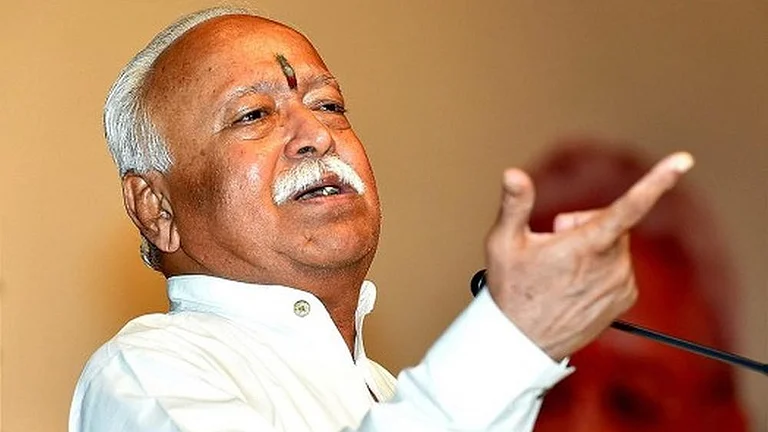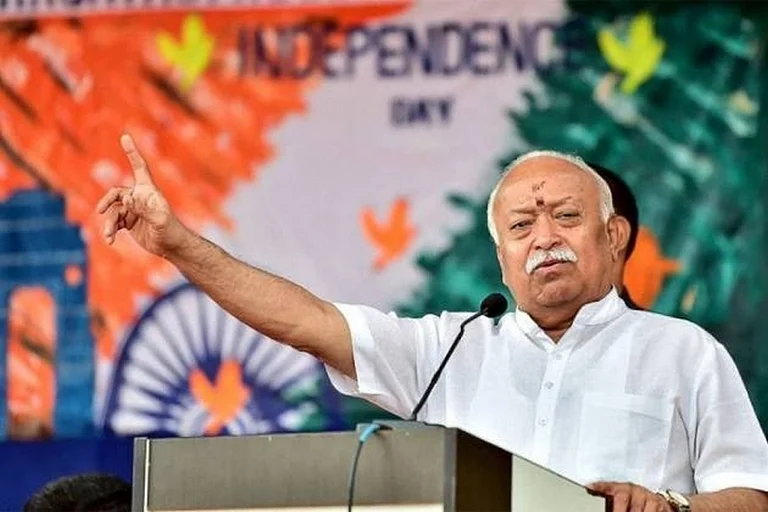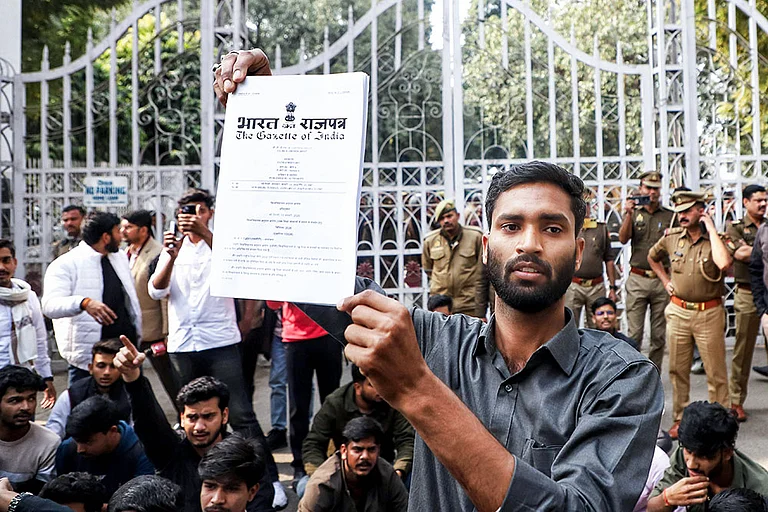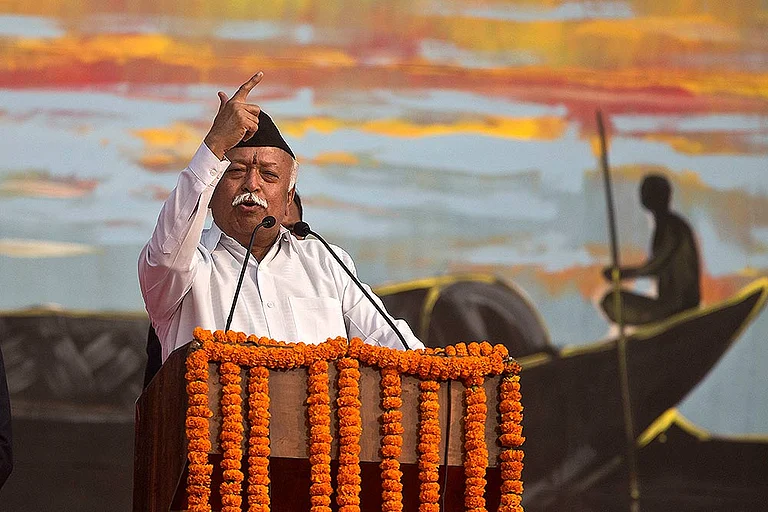
The RSS marks 100 years of its founding in October 2025.
Mohan Bhagwat, the RSS chief, has made his outfit's stand on issues clear.
A celebration of the centenary, marked by numerous events, is underway.
The Rashtriya Swayamsevak Sangh will not participate in movements that it has historically backed, which claim that two prominent mosques at Kashi (Varanasi) and Mathura in Uttar Pradesh were 'originally' temples, later converted into mosques. However, the RSS will not stop its cadres of volunteers, or swayamsevaks, from participating in these 'movements'. This was stated by RSS chief Mohan Bhagwat earlier this week, along with a host of other statements that mark the beginning of the RSS's commemoration of its 100 years.
A door-to-door public contact programme, special sessions involving speakers and dignitaries, and other events are being planned by the RSS both in the runup to the October 2025 anniversary, and during and after it.
For the RSS, or Sangh Parivar, which includes scores of informally constituted groups of volunteers, the anniversary is an effort to showcase what it has achieved over the last century as well as celebrate the fact that it's political offshoot, the Bharatiya Janata Party (BJP) has completed over a decade in power, uninterrupted since 2014, at the Centre.
The upcoming anniversary has become an opportunity for the organisation to put forward its views--sometimes amending them--on an array of issues beyond the cultural sphere, which it officially claims to represent. For instance, Bhagwat clarified on Wednesday, August 28, that he never backed a retirement age of 75 years for himself or another person or position. This essentially makes it clear that the speculation over Prime Minister Narendra Modi's possible retirement at the age of "retirement" is not backed by the RSS as a 'policy'.
According to a recent editorial published in the RSS mouthpiece, Organiser, the RSS has admitted that it has had an impact on India's "socio-cultural and political fabric". This amounts to a candid admission by an outfit that has typically only asserted its role as a cultural organisation. Culture, in the context of the RSS, is typically subsumed under religious identity: it has historically regarded the Hindu identity as representative of India, while talking about the assimilation of Muslims, and other minorities, under the Hindu 'way of life' rubric.
"One of the most significant contributions of the RSS in recent years was its role in the political landscape leading up to the 2014 general elections in India. The RSS, through its affiliated organisations, including the Bharatiya Janata Party (BJP), played a crucial role in mobilising support for the Narendra Modi-led government. The BJP’s landslide victory in 2014 marked a turning point in Indian politics, with the RSS’s ideological influence becoming more pronounced at the national level," the editorial, published on June 22 this year, said.
A three-day event to mark the centenary, recently concluded in Delhi and attended by dignitaries across social and political spheres, from India and overseas, the RSS chief took the opportunity to lay down the future plans of the RSS as well. At an extended press conference, he said there is a 'consensus' between the RSS and the BJP, and that a collective decision is taken. Without specifying whose opinion gets the upper hand in arriving at a consensus, he said, "There might be mat-bhed, but not mann-bhed." That is, there might be disagreements on issues, or different views, but that the RSS and BJP remain united at heart.
At the same time, Bhagwat said the RSS does not play a role in picking a BJP chief. He also said Indians must have three children, once again breaking with the two-child policy that has been a formal and informal norm in India's population policy since the eighties. He also backed a recent Bill introduced by the Centre that would reorganise executive power by allowing a prime minister and lieutenant-governor to dismiss, under certain conditions, the elected chief minister or minister in a State Assembly or Union Territory. He backed the proposed law indirectly, saying it promotes transparency and clean governance.
Just like the BJP has been saying, the RSS chief asserted at the event, held in Delhi's prestigious Vigyan Bhawan premises, that religion is a matter of 'individual' choice, that must not involve any allure or coercion. It appeared to be an indirect reference to laws seeking to prevent allegedly coerced conversions, especially by making it harder for interfaith couples to secure marriages without deep official involvement.
However, the RSS chief did not go over the performance of the BJP government or its specific achievements or missteps, even distancing himself from any expected response to the Trump tariffs. He only said, "We will support it [the government] on the tariff issue."
The most significant remark to emerge in recent days from the RSS camp has to do with the so-called temple movements it has backed in Kashi and Mathura. He indicated that the Gyanvapi Mosque in Varanasi and the Eidgah at Mathura must be 'given' to Hindus. The remark is significant in light of the tumultuous and violent agitations and violence that occurred in the wake of its so-called movement for the Babri masjid, near Ayodhya in Uttar Pradesh, to be recognised as a temple. That version of events was given the stamp of approval by the Supreme Court a few years ago, leading to the construction of a temple at the site where the Babri mosque once stood.




























